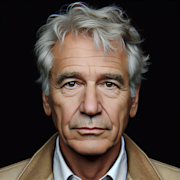The Bridge on the River Kwai (1957)

Released in 1957, “The Bridge on the River Kwai” is a classic war film directed by David Lean. The movie is set during World War II and tells the story of British prisoners of war forced to build a bridge for their Japanese captors. With a stellar cast including Alec Guinness, William Holden, and Jack Hawkins, the film garnered critical acclaim and won seven Academy Awards, including Best Picture.
Plot Summary
The film opens with a group of British prisoners of war, led by Colonel Nicholson (Alec Guinness), arriving at a Japanese prison camp in Burma. The Japanese commander, Colonel Saito (Sessue Hayakawa), orders the men to build a bridge over the River Kwai to connect Bangkok and Rangoon. Despite the harsh conditions and brutal treatment by the Japanese guards, Colonel Nicholson insists on following the Geneva Conventions and refuses to let his men work on the bridge.
Meanwhile, an American prisoner named Shears (William Holden) manages to escape from the camp and is rescued by a British patrol. Shears is eventually recruited to join a commando mission to destroy the bridge on the River Kwai. As the mission progresses, Colonel Nicholson becomes obsessed with building the bridge to demonstrate British ingenuity and engineering prowess. However, his single-minded determination blinds him to the fact that he is aiding the enemy in the war effort.
Themes
“The Bridge on the River Kwai” explores themes of duty, honor, and the futility of war. Colonel Nicholson’s sense of duty to his troops and his commitment to following the rules of war are put to the ultimate test as he grapples with the moral implications of his actions. The film also highlights the absurdity of war and the ways in which it can distort one’s sense of right and wrong. Ultimately, the characters in the film are forced to confront the consequences of their choices and reckon with the true cost of their actions.
Acting and Direction
Alec Guinness delivers a tour de force performance as Colonel Nicholson, capturing the character’s complexity and internal struggle with nuance and depth. Guinness’s portrayal earned him an Academy Award for Best Actor and solidified his reputation as one of the greatest actors of his generation. Director David Lean’s masterful direction brings the lush landscapes of Burma to life and creates a sense of claustrophobia and tension within the confines of the prison camp. Lean’s meticulous attention to detail and innovative use of cinematography earned him an Academy Award for Best Director.
Legacy
“The Bridge on the River Kwai” remains a timeless classic that continues to resonate with audiences more than six decades after its release. The film’s powerful performances, gripping storyline, and stunning visuals have solidified its status as a masterpiece of cinema. In addition to its critical acclaim, the film has also had a lasting impact on popular culture, with its iconic scenes and memorable dialogue becoming ingrained in the collective memory of moviegoers around the world.
In conclusion, “The Bridge on the River Kwai” is a cinematic triumph that stands the test of time as a poignant exploration of the human cost of war. With its powerful themes, stellar performances, and expert direction, the film remains a must-see for cinephiles and casual viewers alike.

Desmond van der Walt
Journalist
More From Classics Authority Movies

Movie
Schindler's List (1993)

Movie
Léon: The Professional (1994)

Movie
North by Northwest (1959)

Movie
Cinematic Allure: The Art of Seduction in Classic Movies

Movie
The Magical Realism of Classic Fantasy Films

Movie
Army of Shadows (1969)





